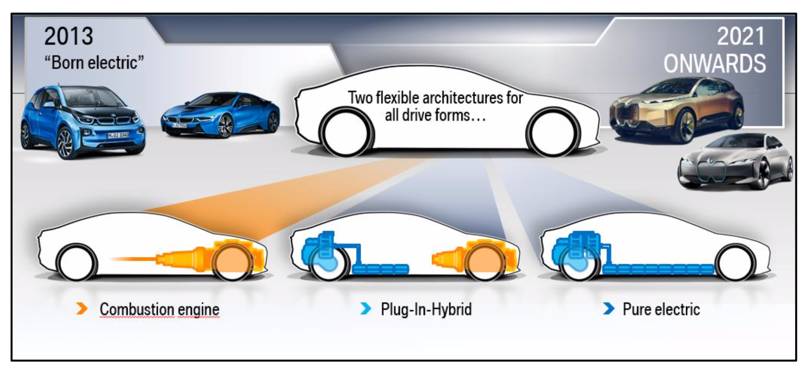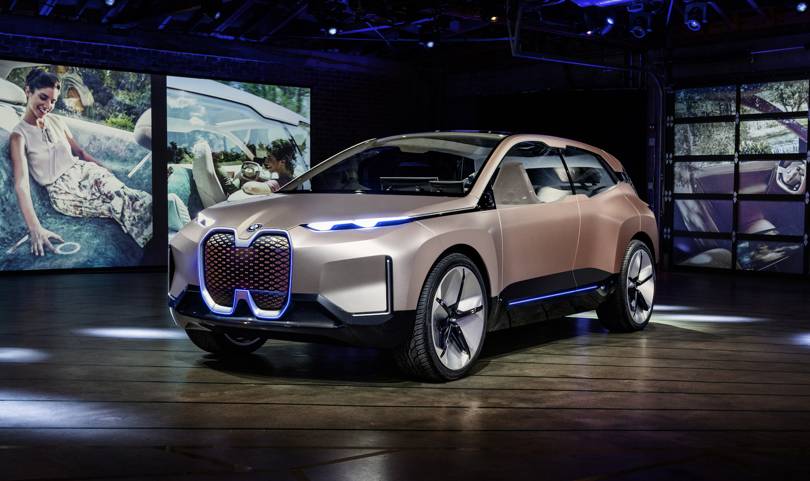Is BMW Transitioning From Internal Combustion Engines To Electric Powertrains?
Automobile enthusiasts, it’s time to have a moment of silence to bid farewell to the internal combustion engine. The power source for automobiles for about one hundred years, Germans invented it in 1876 and it was deemed ideal as the means to power the automobile even though there were a number of alternatives including electric and steam.
It has evolved into a marvel of engineering. Consider this. The combustion engine that is being used to power the BMW M5 generates 625-horsepower and has 1,200-parts, of which about 150 of them move. Weighing 400-pounds, it’s capable of catapulting the BMW M5 to 60-mph in just 3.3-seconds.
Meanwhile, BMW is developing an electric powertrain that is so light one worker can handle it. It includes just two-dozen parts and is missing an exhaust, transmission, and fuel tank, common components of a car powered by a combustion engine. And yet, it outperforms the M5 combustion engine because it generates more torque from the start while combustion engine must gain some speed before torque is achieved. This translates into greater launch speed so that the car can achieve 0 to 60 in a shorter time.

BMW is committed to transitioning from internal combustion engines to electric powertrains. More than 43,000 of its 133,000 labor force has already been trained in the production of electric cars and the company plans to spend $225 million (£200 million) on a research center where it will co-develop battery cells with suppliers. Most of the other automakers that plan to produce more electric cars are relying on Asian suppliers including LG Chem, Samsung, Panasonic, and Contemporary Amperex Technology (CATL) for the cells.

Fellow German manufacturer Volkswagen is also committed to make the change. It recently announced that the gasoline and diesel engines it will introduce in 2026 would be the last. Moreover, it vows that electric cars will account for 40 percent of sales by 2030.
It should be to no one’s surprise that consumer demand is not driving the transition to electric powertrains. Instead, it is global regulations that have pushed for the change. It is these regulations that include the reduction of CO2 emissions that has made VW make its commitment to have more of its fleet be electric. With its eyes on the future, it negotiated with workers in 2016 to eliminate 30,000 jobs as a result of the transition from combustion engine to electric.
The transition is also expected to adversely effect automobile suppliers. In preparation German suppliers including Bosch and Schaeffler AG are cutting jobs while others are shifting to production of electric powertrain components. Supplier Continental and ZF Friedrichshafen, makers of transmissions, are enhancing its electronics capabilities. ZF recently spent $7 billion to acquire Wabco Holdings, a company that manufactures electronic, mechanical, electro-mechanical, and aerodynamic products.
Just as the horse and buggy fainted away, the internal combustion engine is also destined for the same fate. Spurring the change is the prediction that the cost of an electric car will be on par with the cost of the traditional internal combustion engine car by 2024.

